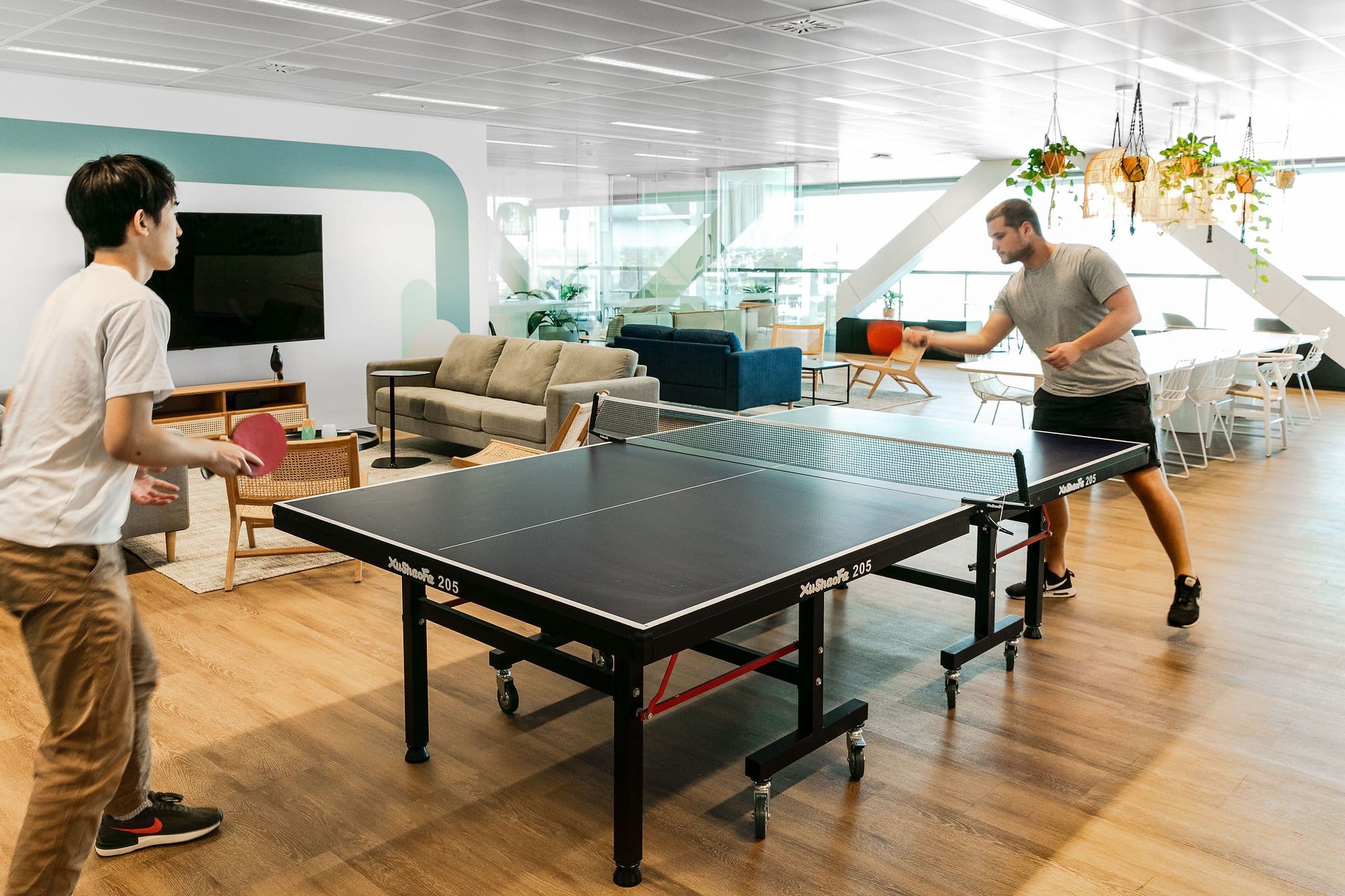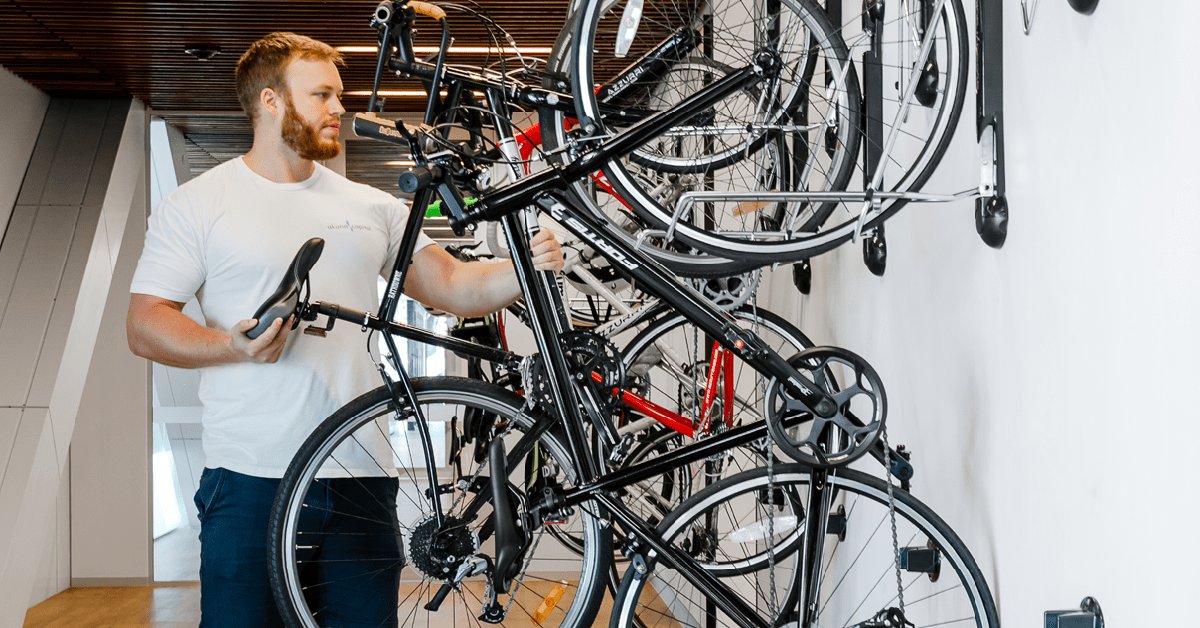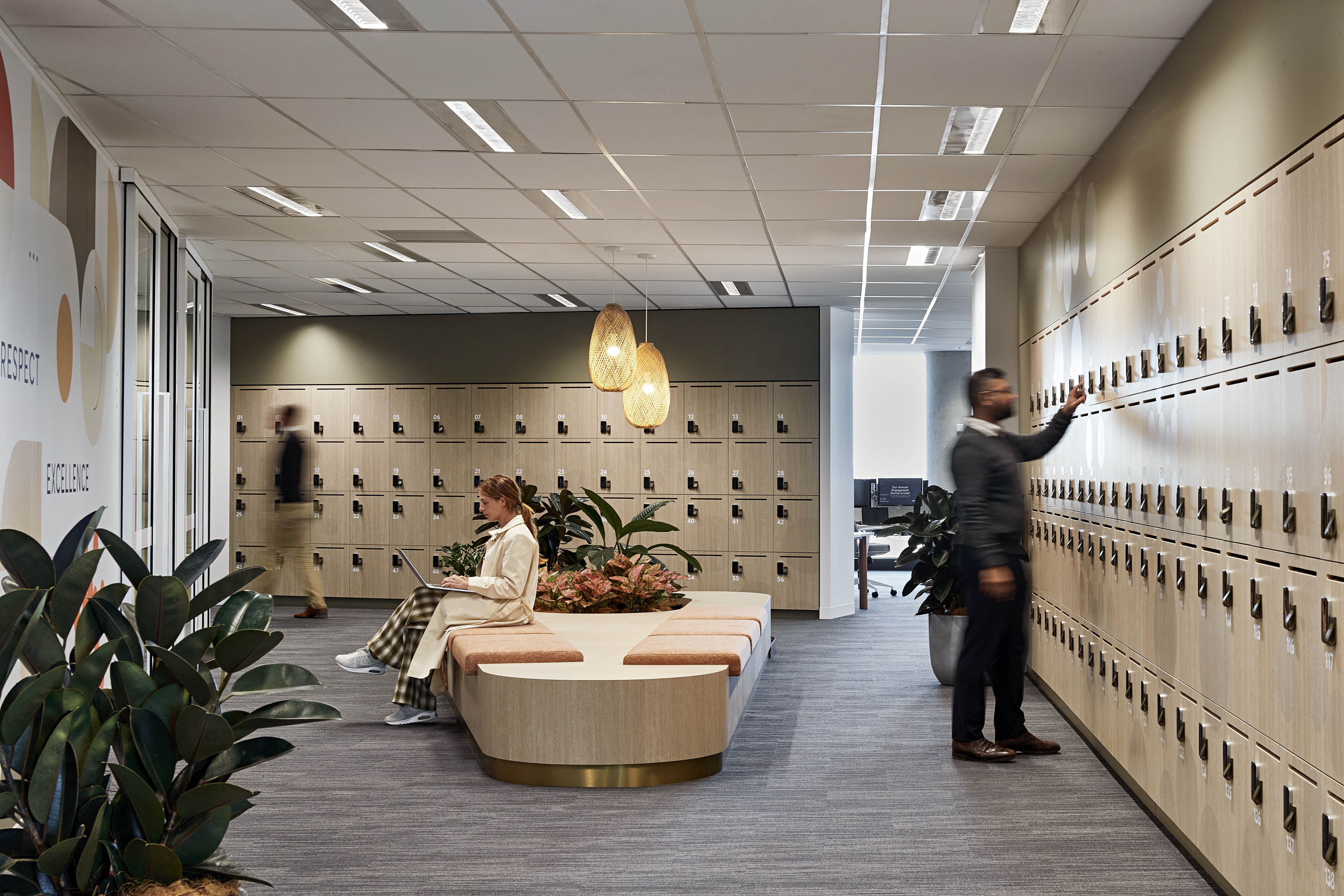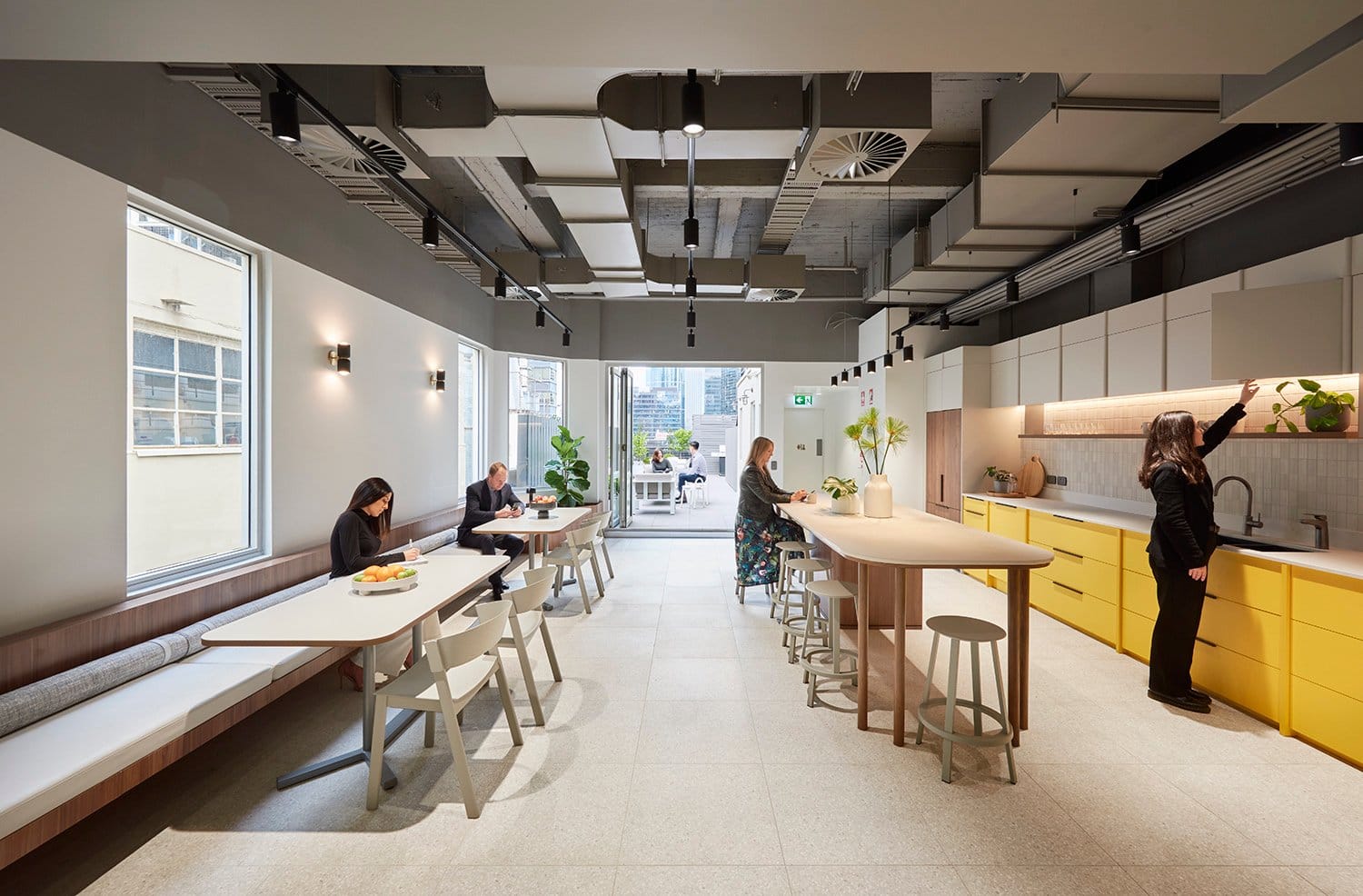
Supporting wellness and wellbeing in the workplace through the employee journey

A focus on wellness and wellbeing in the workplace has become an essential for employees and businesses should consider it essential as well. Gallup’s State of the Global Workplace Report found that businesses who look after employees’ wellness and wellbeing have significantly fewer accidents, resignations, and lower absenteeism. Businesses with engaged employees also enjoy 23% higher profit margins than businesses with miserable employees.
Each day the employee takes a journey from their home, to work, through their workday and then home again. Along their journey there are countless ways a business can support their wellness and wellbeing.
Axiom Workplaces wrkx INDEX™ data has found 21% of employees feel their current workplace environment negatively impacts their wellbeing.' An evidence-based, data-led workplace strategy is essential in supporting wellness and wellbeing through the employee journey.
In this article we will take a take a look into the future of work and how it might change.
Location
The first step in an employee’s journey is their commute. Some commuting options promote wellness and wellbeing more than others. Walking or cycling to work can have significant health benefits. The Victorian Government’s Better Health channel lists a range of health benefits employees can enjoy when they walk or cycle to work including:
- increased cardiovascular fitness
- decreased stress levels
- reduced anxiety and depression
And for those who live too far away to walk or cycle? Choosing a building close to public transport can also promote wellness for employees. A study conducted by the NSW Ministry of Health and the University of Sydney found participants who used public transport walked up to an extra 33 minutes per day compared to those who drove.

To encourage employees to engage in more physical activity a building should have secure bicycle storage and fully equipped end-of-trip facilities. Providing changing rooms with a shower, fresh towels, clothing lockers and hair dryers will encourage employees to be more active, whether walking or cycling to work, or fitting in a workout over lunch time.
Another important consideration when choosing a workplace location is the surrounding amenities. Can employees access supermarkets, nutritious lunch options and a gym while they are at work?
Starting the day
A welcoming environment requires an employee centric workplace. Creating a welcoming and comfortable space through the choice of lighting, colours and textures will help employees engage with their surroundings and feel positive about their workplace.
Biophilia in the workplace can ease stress, improve mood and promote social connections. Xenofontos describes the feeling of walking into a successful workplace like 'walking into your favourite café to meet up with a friend instead of a stagnant, corporate office.'

An often-overlooked consideration is how employees transition into their workday. A locker area is much more than a row of storage. A space where employees can sit down, change their shoes and have a conversation with a colleague provides a soft and gentle way to start their day. Provide good lighting, comfortable seats and add some plants so they can feel the positive effects of biophilia as they get ready.
Work preferences
Everyone has preferences for how they like to work. And after working from home for two years, employees want those preferences to be available to them in the workplace too. During the workplace strategy phase, employee consultation is essential. Finding what employees expect what they need, how they work and what they value will help to design a workplace that supports them to thrive.
“According to our research, having access to a productive environment is far more important to employees than other elements”.
Providing a variety of work spaces allows employees to work the way they prefer. Some employees might find comfort and stress relief in sitting at the same desk every day. Others might work better when they are offered variety. Natural light is essential for general work settings but more focused work requires a quiet corner without distractions.
Research shows that using a sit-stand desk can improve employees' health and reduce neck and shoulder pain. A balance of sitting and standing throughout the day increases movement and engages core muscle groups within the body. It is important to provide information to employees about the benefits of balancing sitting and standing time during their day.
Collaboration
As the role of the post-pandemic workplace continues to be redefined, employees are discovering a key benefit of being in the office is the opportunity to collaborate and work with their team. Taking their employees’ lead, businesses are allocating more space to support all the ways their teams work together.
Collaborative, open work areas ensure team bonding and connection. Quiet rooms and phone booths provide acoustic privacy for conversations. Meeting rooms of various sizes set up for hybrid meetings have become essential. Larger meeting and training spaces are doubling as project rooms and innovation spaces. Having a range of multipurpose and fit-for-purpose spaces allows employees to choose the best environment for their work, alleviating stress and anxiety.

Supporting virtual meetings is more important than ever. Employees need reliable connectivity and access to the right hardware and software tools in meeting rooms. Seamless technology can reduce stress and anxiety and support employees to embrace hybrid working.
A stronger focus on wellness and wellbeing at work has also led to unconventional ways of working. The walking meeting is becoming more popular. Reducing and interrupting the time employees are sedentary improves their health and walking side by side to discuss a difficult subject or resolve some tensions is a proven positive strategy to cause less confrontation. Encouraging employees to attend online meetings while taking a walk allows them to leave the work space, breathe some fresh air and enjoy nature while interrupting the time they are sedentary in the day. Walking meetings can also enhance employees’ creativity while they enjoy the many benefits of being in nature.
Daily needs
Throughout the day employees have additional needs to support their wellness and wellbeing. Social connection, fresh air and an opportunity to step away from work are all features of a healthy work day.
Providing a variety of social spaces allows employees to enjoy human connection outside of the work environment. Feelings of loneliness and social isolation can have significant impacts on employees’ mental and physical health. Providing these social spaces and encouraging connection can reduce these risks. To further promote wellness and wellbeing, outdoor breakout spaces provide opportunity for employees to step away from their work and breathe some fresh air.

More and more businesses are providing dedicated wellness areas in their workplaces. A wellness area might be a break out space with comfortable chairs and a library where employees can sit and relax. It might mean a dedicated yoga and meditation room where a variety of wellbeing workshops are held.
Employee consultation while conducting workplace strategy research can shine a light on the specific needs of employees. These needs inform the important spaces to be included in the workplace. Every workplace has unique employee and cultural requirements to be considered.
Outside of work
The key to employee wellness and wellbeing is to remove as many frustrations from their day as possible and to support them as whole, healthy people. An easy commute and the right work spaces are expected. But a workplace can also remove frustrations from employees’ lives outside of work. Businesses are beginning to offer concierge services. Offering services such as laundry and dry cleaning or providing lunch can reduce employee stress, allowing them to rest after work knowing their chores have already been taken care of.
Providing these services will show employees they are important to the business and help them feel cared for. This will contribute to improved wellness and wellbeing and higher levels of job satisfaction and engagement.
“According to McKinsev's Great Attrition, Great Attraction 2.0 Global Survey, 26% of employees will quit due to lack of support for health and wellbeing”.
Successful businesses know the wellness and wellbeing of their employees is key to success. Happy, healthy and engaged employees lead to improved employee retention and higher profits. A workplace strategy supported by data and employee consultation allows businesses to optimise the workplace to support employee wellness and wellbeing.
Read more about wellness & wellbeing in the workplace:





